The Hunger Project’s vision is a world where every woman, man, and child lives a healthy, fulfilling life of self-reliance and dignity. Your gift helps feed families today while building long-term solutions that end hunger for good. Every donation creates opportunity, empowers communities, and fuels hope. Together we can feed lives, strengthen futures, and move closer to a world free from hunger.
Three Core Elements:
The Hunger Project has three key elements that they use to bring change to the communities they support. These are supporting women as key change agents, mobilizing people for self-reliant action, and forging effective partnerships with government. The Hunger Project focuses on these three pillars as they have proven over the nearly fifty years that they have been working to be effective in bringing the change that they seek in the world.
Supporting women as key change agents
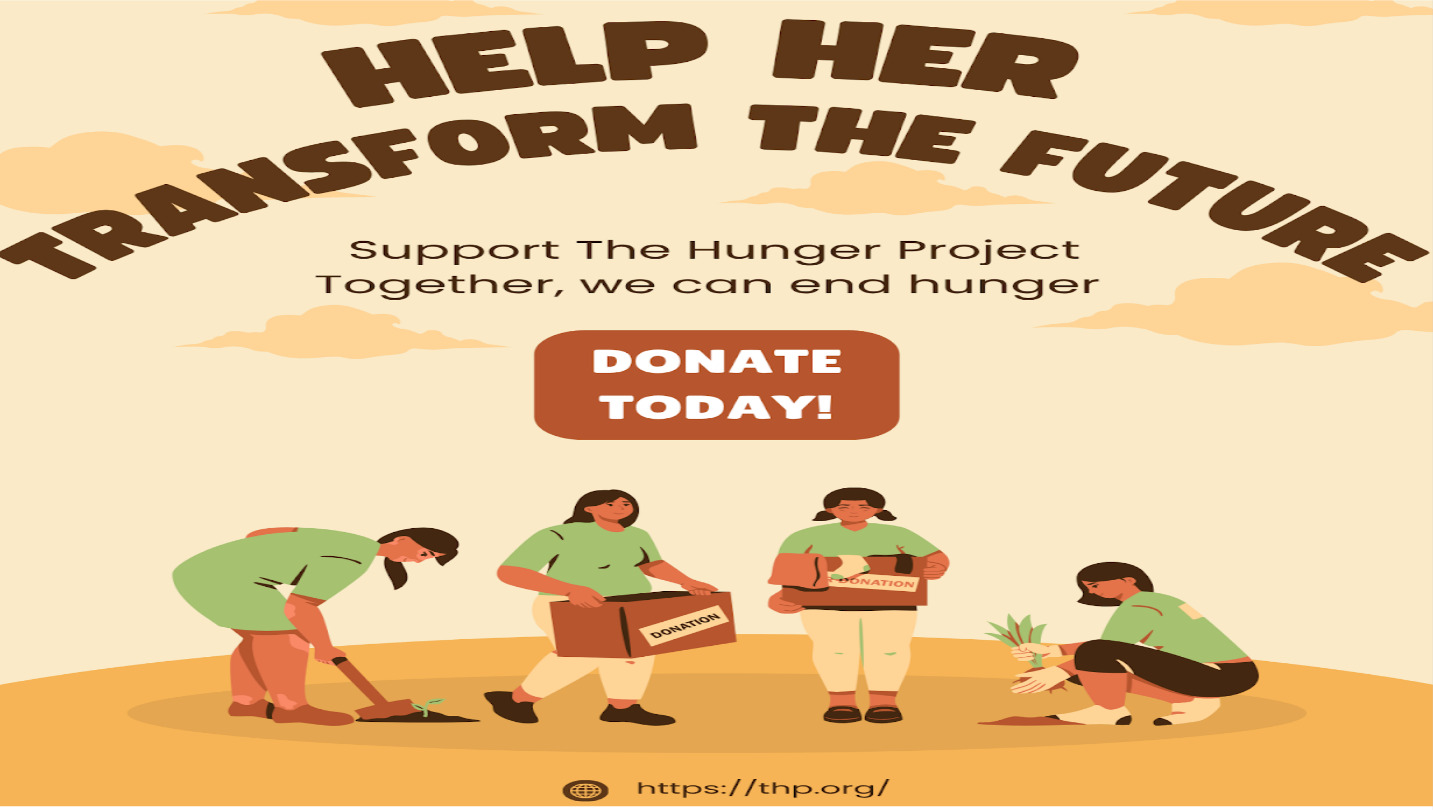
The Hunger Project puts an emphasis on making women the key agents of change, or “animators” as The Hunger Project likes to call them. Women are focused on as animators because in much of the world they are the primary providers of food and care while lacking access to education, resources, or real power. The Hunger Project has identified that creating gender equity can be key to bringing about the changes they seek. The Hunger Project currently has a focus on an epicenter approach to help unite surrounding villages to bring change. These epicenters are typically started with about 10 people and at least half of them, although typically more, have to be women. Creating this gender equity creates a better environment for everyone. It opens the doors for better education and stronger economies for self-reliant communities by empowering women.
https://thp.org/news/empowered-women-for-resilient-communities-in-uganda/
https://thp.org/news/seeds-of-change-sowing-resilience-in-bangladesh/
https://www.youtube.com/watch?v=1DCUrkiE_bo
Mobilizing people for self-reliant action
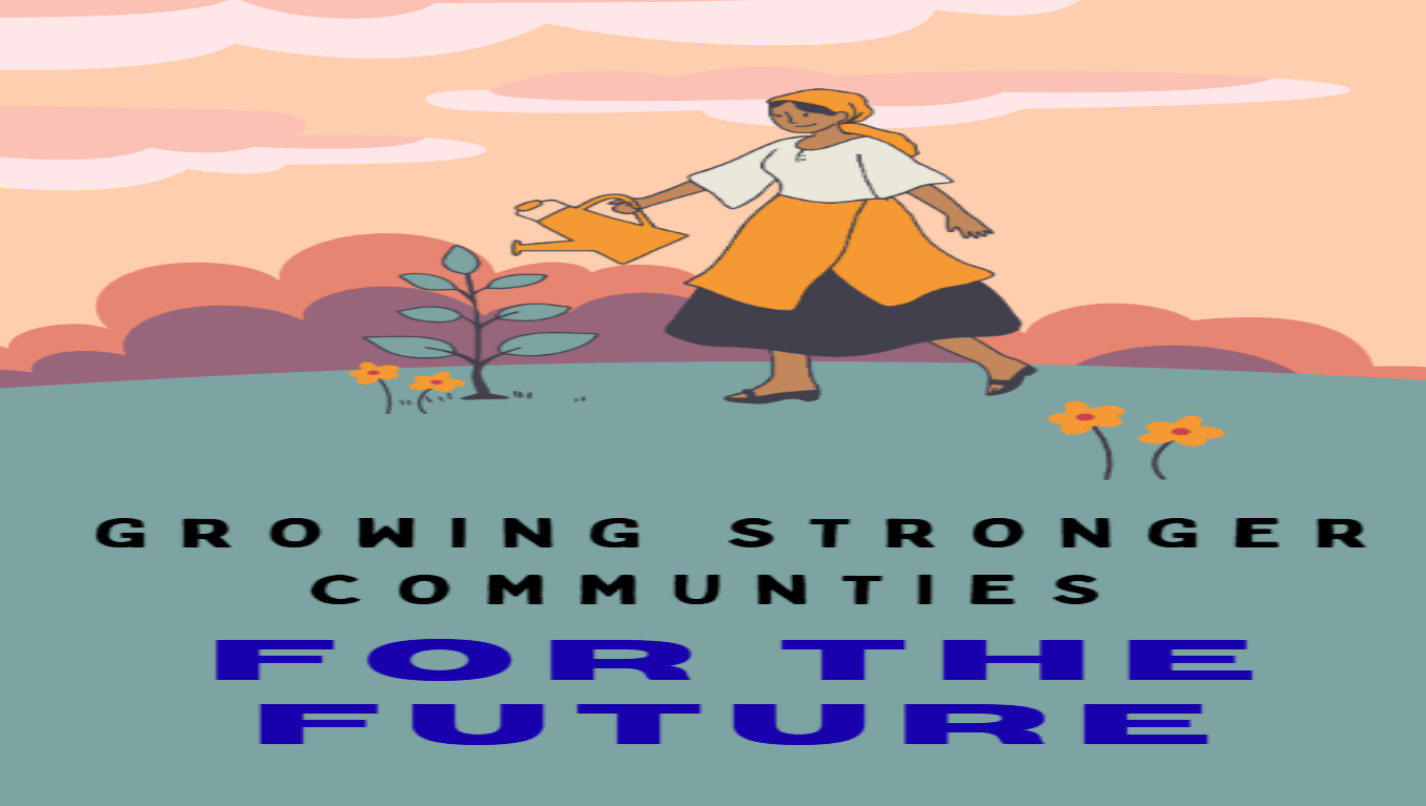
When The Hunger Project first started they had a charitable approach that fed communities and once the funding was gone the donations had to stop. This proved to be ineffective for feeding the communities in need and they shifted models. The proverb give a man a fish and he will eat for a day, teach a man how to fish and he will eat for a lifetime is at the heart of The Hunger Projects philosophy. To achieve this, The Hunger Project must instead educate the communities they help. However, it isn’t enough to just teach agricultural practices to solve the problems plaguing the community. They must also teach communities how to get clean drinking water, how to properly sanitize things, how to start and run a business, and many more. They have had great success through the epicenter approach they have in villages across Africa. They find a cluster of villages together and put a building in a central location. The epicenters often include a bank, a nursery school, toilets, clean water, and a medical clinic. The Hunger Project also uses the epicenters as a central location to teach the surrounding villages sustainable agriculture practices and food preservation techniques so that they can grow, store, and have access to food year round. As of 2024, The Hunger Project has created over 120 epicenters, and of these, over 70 have declared self-reliance.
https://thp.org/news/faridah-uganda/
Forging effective partnerships with government
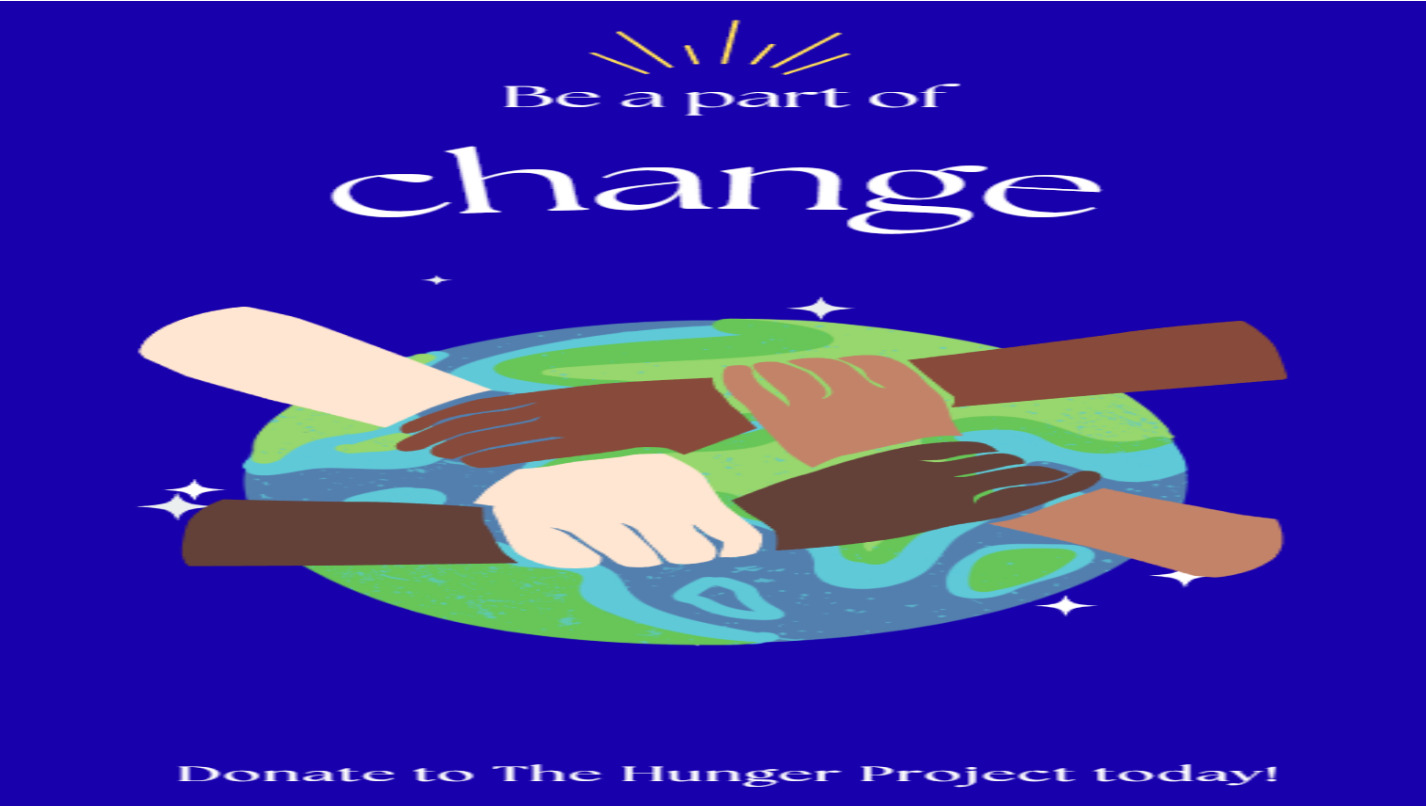
The Hunger Projects last core goal is to build lasting, effective relationships with the governments of the countries they work in. This allows for added support into the communities they serve and helps create a faster approach to self-reliance. With the support of the governments there can be increased funding or assistance to the communities, which will then help to boost the economy, and overall self-reliance, of the countries that The Hunger Project serves. They also work to bring women into the governments of the countries that they serve as part of their goal for gender equity.
https://www.youtube.com/watch?v=cY_iAEGL-1g
https://www.youtube.com/watch?v=tSmQ1NygNdU
Statistics:
Since 1977, The Hunger Project has had a global commitment to ending hunger with sustainable solutions. By empowering women and local communities, they have been able to encourage leadership and promote economic independence.
Did you know?
- 99% of the world’s undernourished people live in mid- and low- income countries.60% are Women and girls.
- 75% depend on agriculture for their livelihood.
- There are 733 Million people in the world that suffer from chronic hunger.
- Hunger and Malnutrition are the greatest threats to health (weakened immune system, anemia, etc.) in lower income countries.
- The Hunger Project is involved in 13,000 communities.
- The Hunger Project created World Hunger Day, which is May 28th.
https://thp.org/news/sharing-strategic-framework-2022-2027/
https://thp.org/the-latest/know-your-world/
https://thp.org/what-we-do/impact/
How will the money be used?
Donations are used to support communities and leadership development in 13 countries: Bangladesh, Benin, Burkina Faso, Ethiopia, Ghana, India, Malawi, Mexico, Mozambique, Peru, Senegal, Uganda and Zambia.
- Promoting community leadership roles for women.
- Help connect communities and local government.
- Teach communities sustainable and renewable agriculture methods.
- Create community foodbanks and promote finance programs.
- Teaching proper sanitation techniques.
- Providing clean drinking water and teaching how to treat water.
Learn more and help communities today:
To learn more about The Hunger Project visit: The Hunger Project | Together, we can end hunger.
About us:
This project is a collaboration between students of the University of North Texas for a civil engagement project. The participating members are Jake Lee, Natalie Johnson, Andrew Nguyen, and Valarie Dugay. We are driven by a shared duty to promote empowerment initiatives, economic opportunity, and advocate for community solutions for lasting generational change.
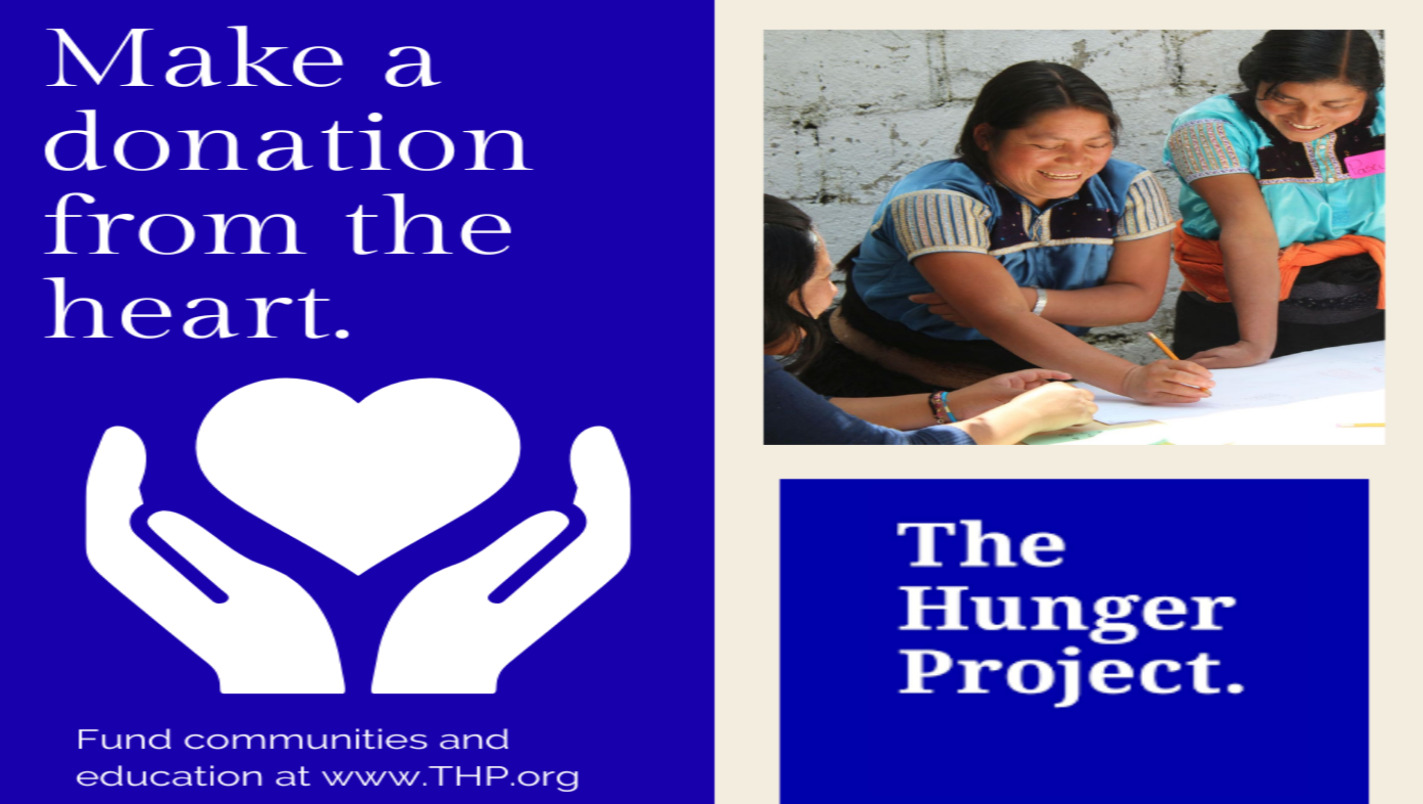
Sources:
Gender Equality. (n.d.). The Hunger Project. Retrieved November 15, 2025, from https://thp.org/what-we-do/issues/gender-equality/
Know Your World. (n.d.). The Hunger Project. Retrieved November 15, 2025, from https://thp.org/the-latest/know-your-world/
Naithani, P. (2023, September 22). THP in the Media: Uganda’s Communal Food “Epicenters” Aim to End Hunger Forever. The Hunger Project. https://thp.org/news/faridah-uganda/
Naithani, P. (2025a, May 25). Empowered Women for Resilient Communities in Uganda. The Hunger Project. https://thp.org/news/empowered-women-for-resilient-communities-in-uganda/
Naithani, P. (2025b, May 25). Sowing Resilience in Bangladesh – The Hunger Project. The Hunger Project. https://thp.org/news/seeds-of-change-sowing-resilience-in-bangladesh/
Our Impact. (n.d.). The Hunger Project. Retrieved November 15, 2025, from https://thp.org/what-we-do/impact/
Sharing Our 2022-2027 Strategic Framework. (2022, September 29). The Hunger Project. https://thp.org/news/sharing-strategic-framework-2022-2027/
The Hunger Project. (2024, January 19). Creating A World Without Hunger: Overview of The Hunger Project. YouTube. https://www.youtube.com/watch?v=cY_iAEGL-1g
The Hunger Project. (2025, May 7). Mamatou’s Journey: Women’s
Empowerment in Action | The Hunger Project Benin. YouTube. https://
www.youtube.com/watch?v=1DCUrkiE_bo
The Issues. (n.d.). The Hunger Project. Retrieved November 15, 2025, from
https://thp.org/what-we-do/issues/
Tom Kelly. (2024, May 24). Creating a World Without Hunger | Inside The
Mission of The Hunger Project. YouTube. https://www.youtube.com/watch?v=tSmQ1NygNdU
Uganda 2024. (2025). https://thp.org/wp-content/uploads/The-Hunger-Project-Annual-Report-2024.pdf
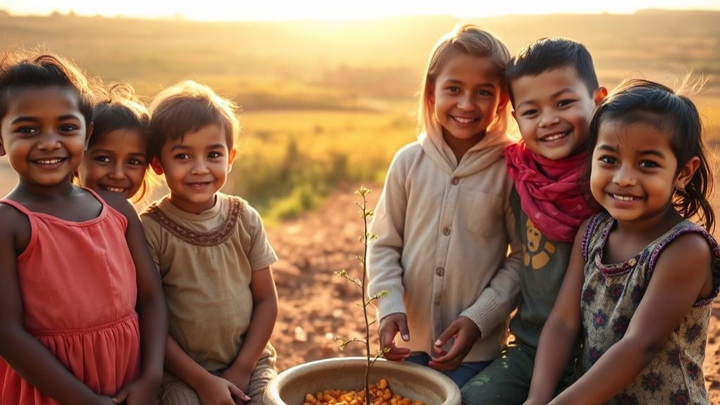
 Verified
Verified